Navigating Pregnancy Loss with Compassion and Support: A Conversation with Angel Leung
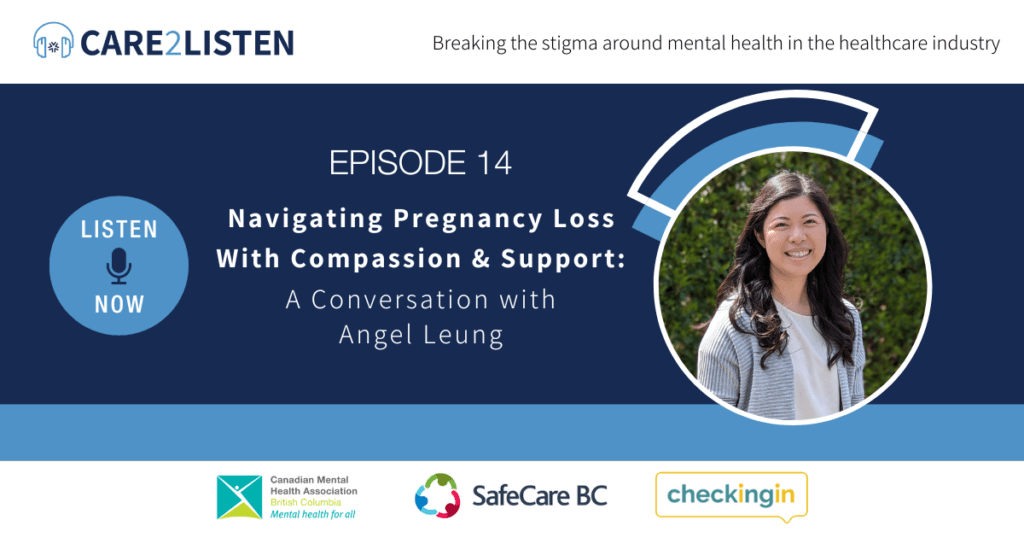
Angel Leung, a registered nurse and founder of Baby Bean Consulting, shares her moving journey through personal loss to professional advocacy, highlighting the gaps in healthcare support for women facing pregnancy loss.
Episode 13 | Dr. Julia Smith
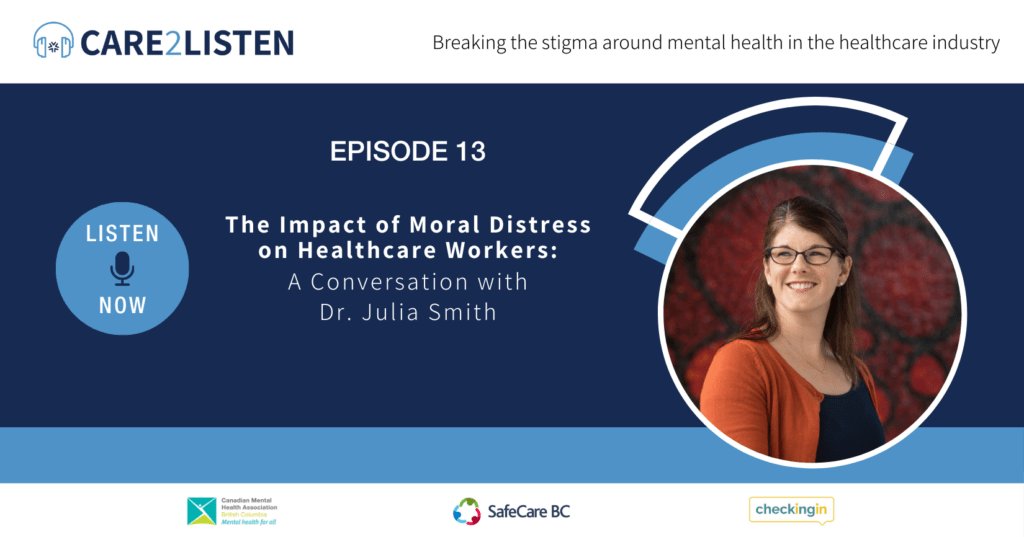
Dr. Julia Smith discusses the impact of moral distress on healthcare workers, emphasizing the need for structural support and the importance of recognizing care work’s value to address health inequities and the mental health challenges faced by those in the healthcare sector.
Episode 12 | Jennifer Whiteside
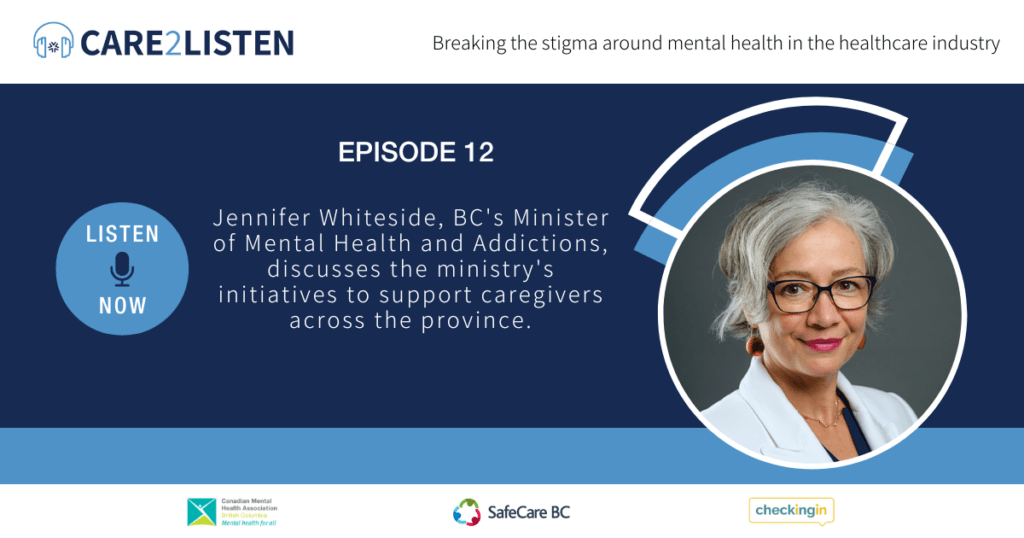
Jennifer Whiteside, B.C.’s Minister of Mental Health and Addictions, discusses the ministry’s initiatives to support caregivers across the province.
Episode 11 | Jonathan Orr
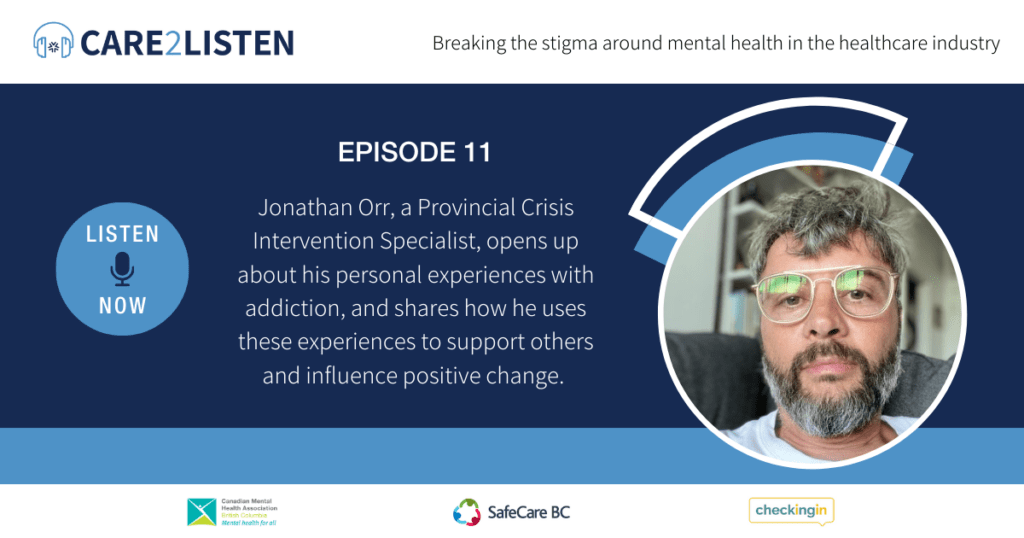
Jonathan Orr, a Provincial Crisis Intervention Specialist, opens up about his personal experiences with addictdion, and shares how he uses these experiences to support others and influence positive change.
Episode 10 | Alyssa Pelletier
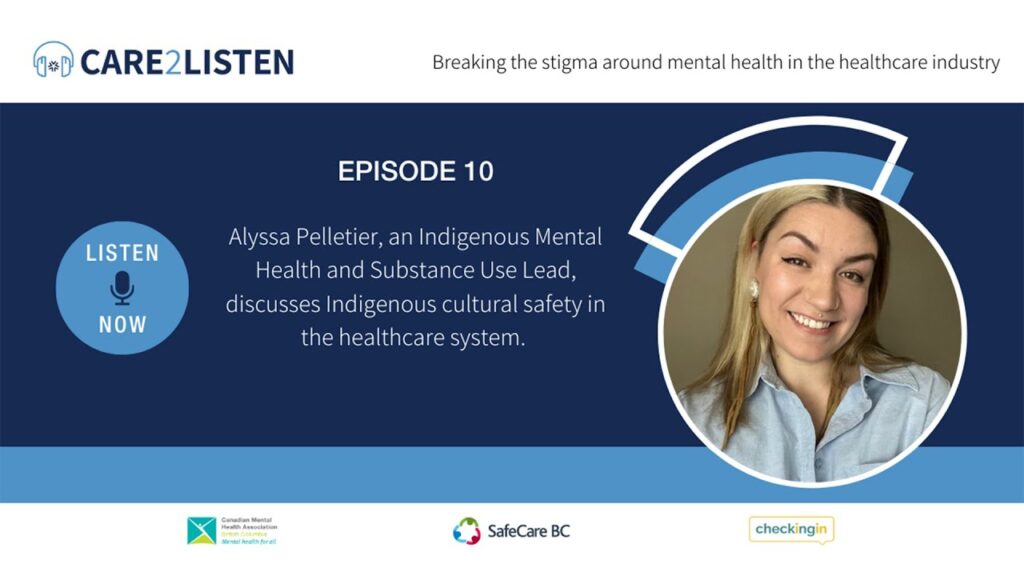
Alyssa Pelletier, an Indigenous Mental Health and Substance Use Lead, shares her story as a Métis woman discussing Indigenous cultural safety in the healthcare system.
Episode 9 | Shannon Hart
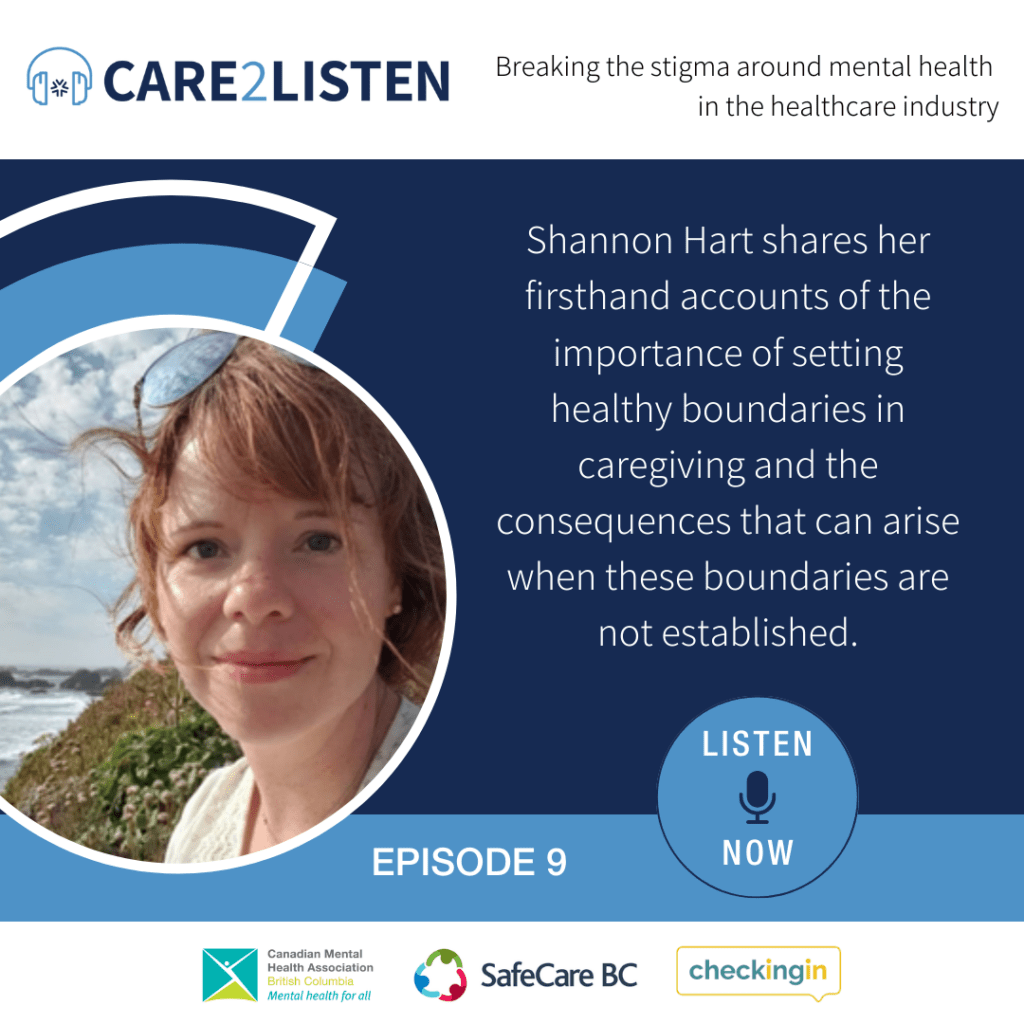
Shannon Hart is a caregiver and the author of “The Patient Doesn’t Come First, You Do”. A registered nurse for more than 15 years, she is a caregiver at work and at home.
Episode 8 | Stacy Ashton
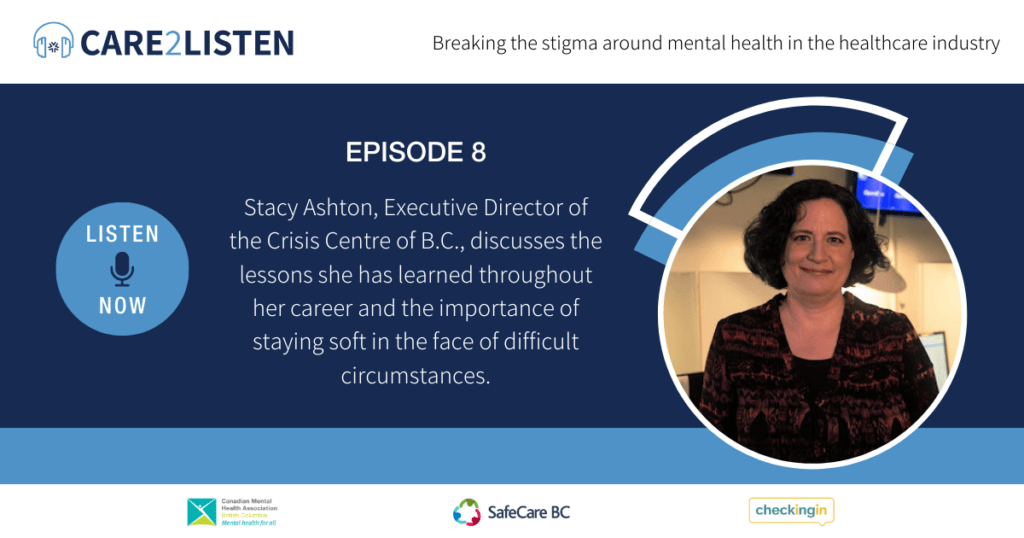
Stacy Ashton, executive director of the Crisis Centre of B.C., discusses the lessons she has learned throughout her career and the importance of staying soft in the face of difficult circumstances.
Episode 7 | Florence Williams
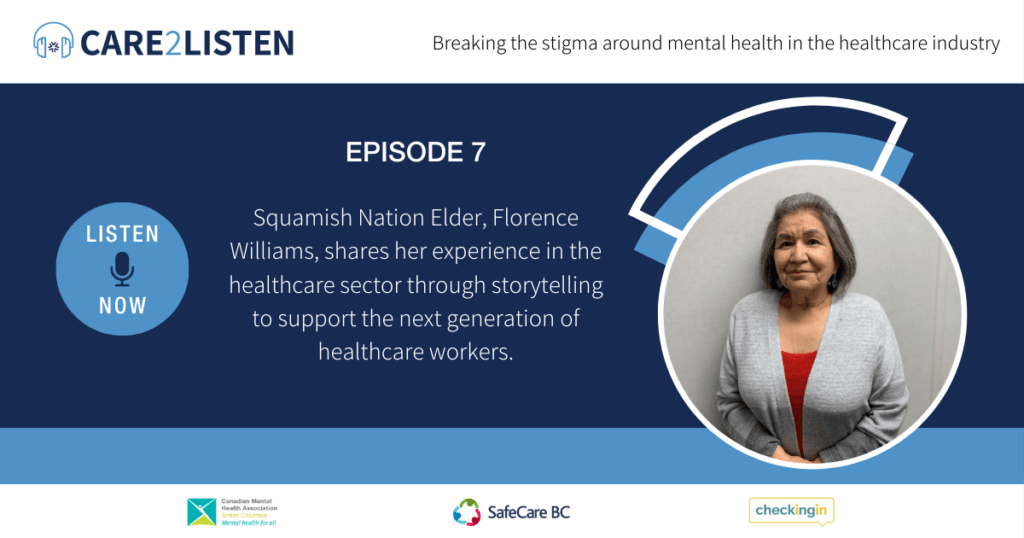
I had been doing some work with my therapist. I still had a therapist that I was working with and I had made peace with my father, and I was able to say I am Squamish, but that was three years ago. So it’s been in the last three years that I can honestly say that I am proud to be Squamish and I feel like I’m home.
Episode 6 | Mikhail Nisenboym
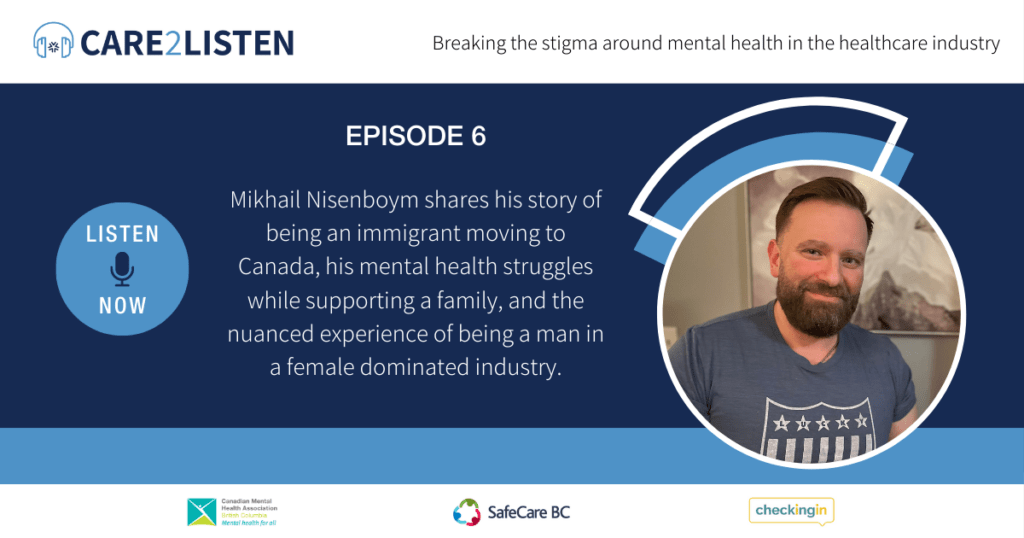
I think a lot of, even family members, they struggle with this on a daily basis, having to fight, you know, guilt and things that they, you know, putting their loved ones and surrendering loved ones to a place like where I work.
Episode 5 | Tonya Neufeld
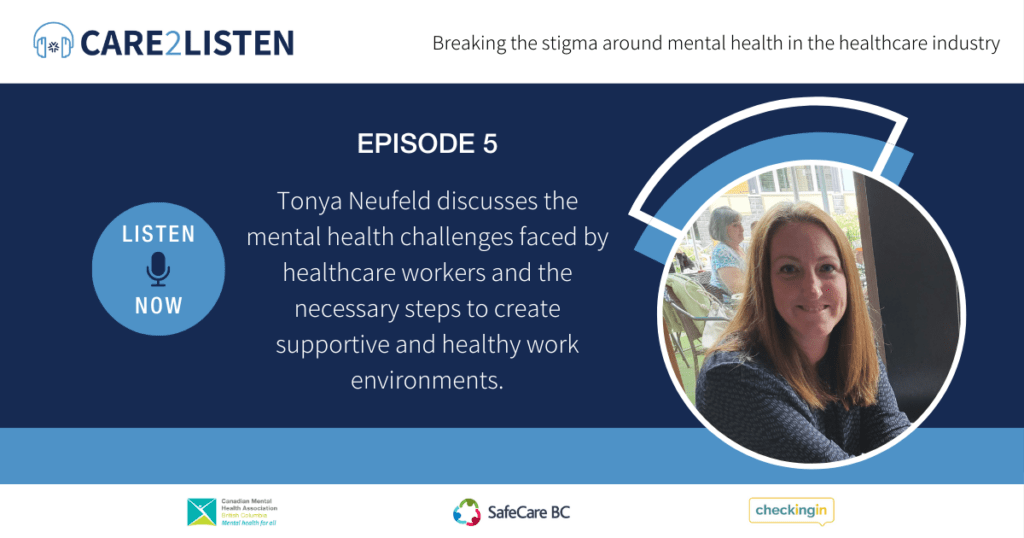
A lot of the suicides we’ve seen recently, you know, people that it feels like it’s out of the blue, but I’m sure that person was struggling for a long time and was just trying to cover it up. So, I think breaking the stigma and myself openly talking about it and bringing it up like it’s any other conversation.


